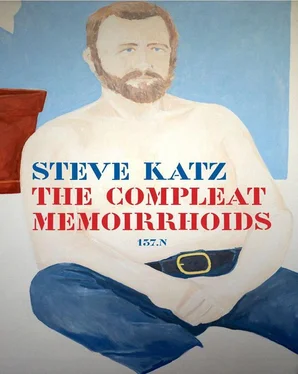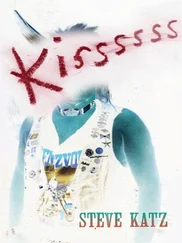I dedicate this kibble of prose to Ozark, to whom I apologize deeply. And I write it for all our wonderful dogs: for Junk who got smashed by a car, for Grapes whom we had to leave behind, for Face, the hyper one, who ran with me on mushroom hunts, for her son, Hank, who chased cows and had to be put down, for Sampson, the glutton, the huge willful fool. Dogs bless us with their shorter lives, and help us understand how to deal with separation and loss. I thank you all, and hope we all can meet again in the happy hunting ground.
Big war was on. Big job for me was to rise at four or five in the morning and trudge up the hill to Broadway and 173rd Street, to stand in line at the A&P till my mother showed up at seven, just before the store opened, with the ration books. That way we’d be in good position to buy some of the sugar, butter, or meat that was only occasionally available. I wanted to unfold my heart into the war effort like an American flag. I prayed the war would last long enough for me to get over there and kill some Nazis or Nips myself.
We wanted so much to be heroic in her eyes. I was seven years old and she was orbiting forty. She was the mother of my sister’s friend, Joan. She looked tall to me, and gracefully voluptuous. She had delicate Semitic features — aquiline nose, high cheekbones, and a full mouth she impastoed with blood-red lipstick that played against her blue eyes. A lacy negligee couldn’t have been more provocative than the blue-grey uniform of the AWVS (American Women’s Voluntary Service) that she wore as she ran that operation from a storefront on Broadway. She encouraged kids to get involved in the war effort. It didn’t take much to encourage me. For her I scoured the neighborhood, pulling behind me a cardboard box with a rope harness. I collected scraps of metal foil and worn rubber heels to be recycled into the fight against the axis. She was the foundation of my patriotism. Throughout my neighborhood every day I fought my own little war, just so I could return and be praised by her for bits of foil and scraps of rubber. Sometimes she rewarded me with a comic book — Captain Marvel Jr ., whom I loved for his blue costume, or Archie and his bumbling romances with Betty and Veronica. I preferred Veronica for her black hair that made her look more like my muse. Once she took my face to her bosom and kissed me on the right cheek. I carried that kiss home, my face tilted to the right with the weight of it. “Look at that,” said my sister, Rita, who was eight years older than I. “Where did you get that?” The implications of a kiss were surely richer for her than for myself. I checked my face in the mirror. The imprint of lips was like a brand, a livid tattoo, my badge, and my medal. I would never wash it off, and I didn’t, and when I look closely at my face, I see it there today.
That was my initiation into what has become a long, complicated, not always delightful interaction with the muse. Everything I’ve done in my life for any reason greater than my limited sometimes tainted self has been for her, to invoke her, to please her, to satisfy her. Fortunately I haven’t satisfied her yet.
My big buddy, Paul, was shrunk by lightning. He’d been diminished to start with, but had a boomer voice, the voice of someone who at one time was much greater. We trained together as smokechasers at a Forest Service camp near Pierce, Idaho when this happened. Our crew climbed to a ridge far above the camp where we were to practice cutting a fire line — dig to the dirt beneath the duff, drop any snag and get it out of the way, roll every branch, turn every stone, widen the line to the dirt with the broad blade of your Pulaski. Without clouds without warning I felt a crack and flash, as if the atmosphere suddenly split. I reopened my eyes and looked down to my right. Here was Paul, 60 % smaller, trying to work his Pulaski, though the tool hadn’t shrunk with him. Puffs of steam rose off the smaller Paul, as off a waffle iron in the morning.
“What happened, Paul?” I asked.
“I don’t know. I think I caught some lightning.” His voice boomed, but he looked small and embarrassed. “I guess that finishes the job for me. No more work in the woods for me.”
“Don’t say that, Paul. You’ll work.” I knew it wasn’t true.
That finished Paul for fire school. He was too little to be a smoke chaser, not to mention that he had hoped to go to smoke jumper school. Now he was so light he could be blown away in the breeze, or sucked into the flames.
I didn’t expect ever to see him again, but we ran into each other late that Fall. Jingle and I had moved to Eugene, Oregon. Avrum, our first son, was born there, as was Nikolai, our second. I worked at The Branding Iron, a steakhouse, the only restaurant in Eugene that hired waiters. It was a big change from the woods to a steakhouse. The logging industry was suffering a recession, so the majority of customers were doctors, dentists, and undertakers. They could afford the steaks.
I didn’t recognize Paul at first. He came in alone, sat at a corner table, and ordered a child’s portion, medium rare. Paul was surprised to find me slinging steaks.
“The only thing permanent in life is change.” Sometimes saying a cliché gets right to the point.
“Don’t I know that,” says Paul, voice blasting awake the drowsy professionals who masticated sirloin around the room. “It’s tough to find a job in the woods when you’re three feet tall. You know, I used to carry a Ponderosa log over the mountain under each arm. Now they float them over with balloons.”
“That’s a big difference,” I said.
We agreed to go for a walk on Tuesday, my day off.
Jingle, the wife, had a premonition that Tuesday, and asked me not to go. I went anyway. We walked Skinner’s Butte, and weren’t half way down the trail when I heard that all too familiar crack. It is often said that lightning won’t strike twice, so I didn’t worry, but when I looked down to my right, Paul was gone.
“Pauly, Pauly” I cried out. “What happened?”
“I don’t know,” boomed his voice out of the dust. “I think I caught some lightning again.”
“Another tough break,” I said.
“I’ll never work again. Here I was headed for the Clearwater, to pop some balloons.”
“Do you want to keep on walking?” I was afraid to move. I could easily step on him.
“You go on ahead. I’ll catch up.”
And catch up he did, and since then he has never left me. Although he is Paul, he has become like my imaginary friend. We have long conversations about war and politics and ecology. Iraq is on his mind. Terrorism is on his mind. He falls silent only if I am indiscreet and talk about the lightning.
In Guangzhou we stay in a dormitory room at a People’s Hotel. All ten beds in the room are occupied. One of the girls who works as a hostess and maid gloms on to Rafael. That he speaks Mandarin makes him doubly attractive. She’s slim and graceful, has a pretty face, long black hair, a ready smile. Her voice is damaged, as if some caustic has corroded her vocal chords. The speech sounds like velcro pulling apart. Rafael, she must imagine, could be her ticket out of the People’s Republic. It has happened to him before with girls angling to get out of China. He treats her nicely, and she is very nice to him, and nice to me as well. One of the virtues she hopes will win him is her respect for the patriarch.
Rafael introduces me in our room as an American novelist and poet. “Ahhh,” some of them exclaim, and they stare at me as if I am an example of an American panda. One of them comes forward to assume the position of leader of the cadre. He speaks as if from behind a podium. “This is an auspicious evening. We are here with our American friends, a poet and his son who speaks perfect Mandarin. I will write a poem. Each of us will write a poem. Our American friend will write a poem. His son will translate, and thus we will have an evening of poetry.”
Читать дальше












